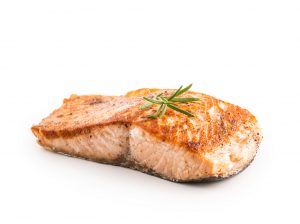Get clarity around allergic reactions caused by inhalation of food proteins. Plus, get a head start and apply soon for the 2019 Sabrina Shannon Memorial Award, and get to know our talented and passionate Board Members.
Allergic reactions: Clarity around reactions caused by inhaling aerosolized proteins
Recently, there have been many articles in the media regarding inhaling fish fumes due to the tragic loss of an 11-year-old boy in the U.S.

Dr. Chan
As Dr. Edmond Chan, a pediatric allergist at BC Children’s Hospital, and one of Food Allergy Canada’s healthcare advisory board members, noted in a Global News article, “allergic reactions to food from the air can only be triggered if the allergy-causing protein is present. It typically occurs through some kind of cooking or processing type of situation,” he said. “In this case, the fish would have been aerosolized through water vapour like steam or frying or something.”
Although allergic reactions through inhaling food protein are rare, be sure you are familiar with how these reactions can occur:

- In steam from cooking food (e.g. sizzling fish)
- When food in a powdered form is released into the air (e.g. blowing powdered milk)
- When small amounts get into the air when food is crushed or ground.
The smell of a food alone does not cause an allergic reaction. The smell is caused by volatile organic compounds (VOCs), which are not proteins. To have a reaction, you must be exposed to the protein.

Dr. Ben-Shoshan
Dr. Moshe Ben-Shoshan reiterates this point in the same Global News article using peanut butter as an example, “When we smell the peanut butter smell, it contains fatty acids. That’s the reason we have that specific odour. But it does not contain the protein. To have a reaction, you have to be exposed to the protein.” Dr. Ben-Shoshan is a pediatric allergist and immunologist at Montreal Children’s Hospital, and also a Food Allergy Canada healthcare advisory board member.
Direct ingestion of an allergy-causing food poses the greatest risk for most people with food allergies. Understanding how to avoid contact with a food allergen will help prevent allergic reactions.
If an anaphylactic reaction does occur, epinephrine (e.g. EpiPen®, AUVI-Q®) is the first line treatment and should be used as soon as possible.
Learn more about avoiding allergens and the other ways to come in contact with a food allergen, such as oral ingestion (mouth) and skin contact (touch).

Sabrina Shannon
Now accepting applications: The Sabrina Shannon Memorial Award
If you are a post-secondary student under the age of 25, apply for the Sabrina Shannon Memorial Award for a chance to be awarded $1,000. Applicants do not need to have food allergies to be eligible for the award.
Learn more and share with others who may be eligible. Deadline is June 14, 2019.
Introducing our Board Members

We are grateful for our dedicated Board Members who volunteer their time to support our mission to educate, support and advocate for Canadians living with food allergies and the risk of anaphylaxis. They are a diverse group of leaders who are committed to our organization and are passionate about food allergy.
Meet our Board.
Tags: Board Members, Global News, sabrina shannon memorial award